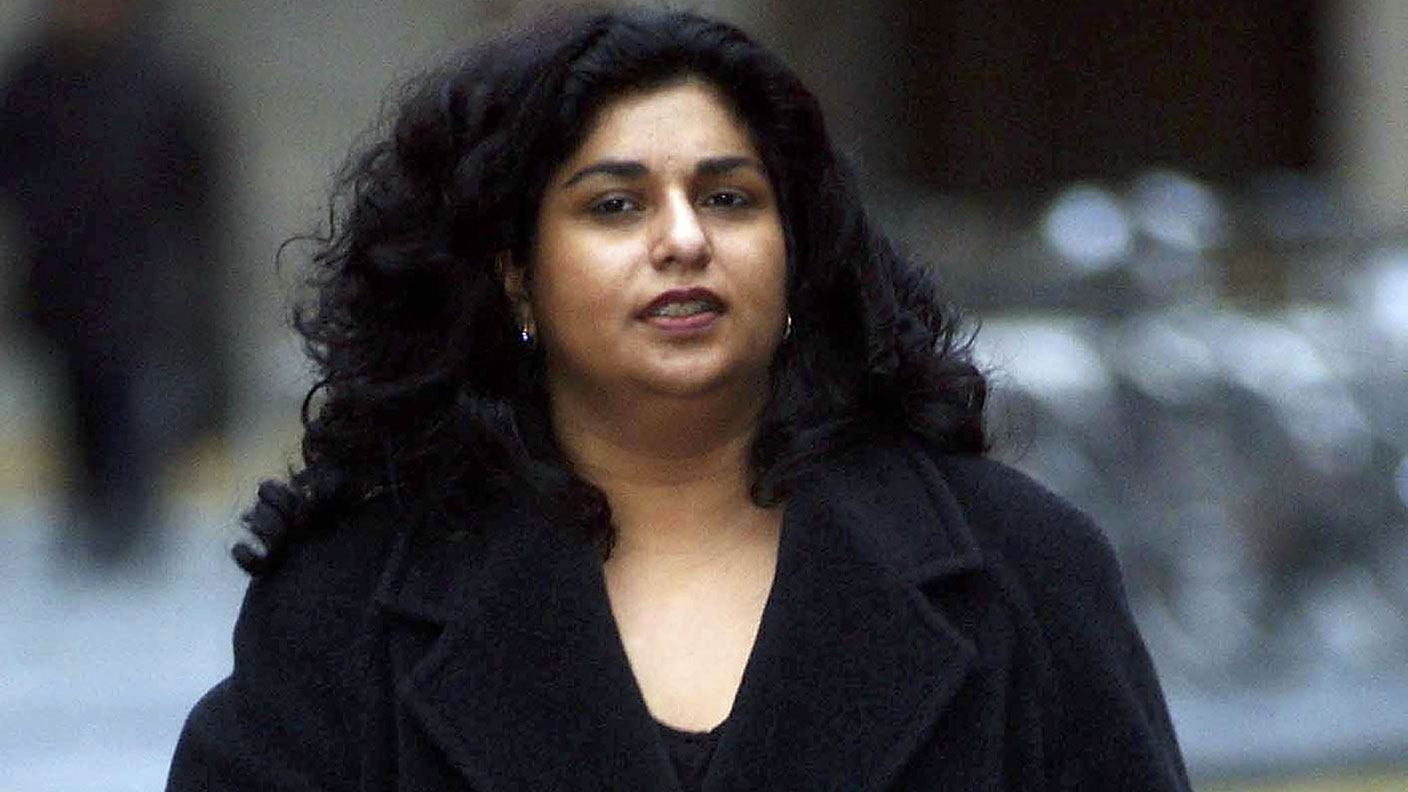Great frauds in history: how Joyti De-Laurey became “the Picasso of con artists”
Joyti De-Laurey forged the signatures of her bosses at Goldman Sachs and started writing cheques to herself. Over many years, she netted £4.3m.


Get the latest financial news, insights and expert analysis from our award-winning MoneyWeek team, to help you understand what really matters when it comes to your finances.
You are now subscribed
Your newsletter sign-up was successful
Want to add more newsletters?
Joyti De-Laurey was born Joyti Schahhou in 1970 in London and grew up in Hampstead. She worked as a sales assistant in an Aston Martin showroom before setting up a sandwich bar business with her spouse Tony De-Laurey. When it failed she signed up as a temp and was sent to Goldman Sachs. She gained a reputation for being an efficient worker and was hired as a full-time personal assistant for investment banker Jennifer Moses, also taking on tasks for Moses’ husband, Ron Beller. When Moses left Goldman, De-Laurey went on to work as an assistant to banker Scott Mead.
What was the scam?
Goldman personal assistants were expected to help organise the private lives of their bosses. De-Laurey would later claim that this involved routinely forging the signatures on personal cheques in order to cover their household bills and expenses. The temptation proved to be too much for her and she started writing cheques to herself, starting with one for £4,000. By the time she was working for Mead, she was forging money transfers by attaching additional pages to legitimate transactions. She spent the money on lavish holidays, villas and even £400,000 in jewellery.
What happened next?
By 2002 De-Laurey was planning to leave Goldman and start a new life with her family in Cyprus. But while she was working out her notice, Mead decided to make a donation to Harvard University. When he discovered that he hadn’t enough money in his investment account to cover the donation, he investigated and discovered the theft. De-Laurey was arrested and her accounts were frozen. Two years later she was convicted of multiple counts of fraud and obtaining money by deception. De-Laurey was described in court by Mead as the “Picasso of con artists”. Her mother and her husband were also convicted of money laundering.
Try 6 free issues of MoneyWeek today
Get unparalleled financial insight, analysis and expert opinion you can profit from.

Sign up to Money Morning
Don't miss the latest investment and personal finances news, market analysis, plus money-saving tips with our free twice-daily newsletter
Don't miss the latest investment and personal finances news, market analysis, plus money-saving tips with our free twice-daily newsletter
Lessons for investors
De-Laurey is believed to have stolen £4.3m (equivalent to £7m in today’s money), including a single £2.25m transfer from one of Mead’s investment accounts, and only part of the money was recovered. Both the bankers involved and Goldman Sachs received a huge amount of negative publicity for the fact that it had taken them so long to become aware of the thefts. It is a good idea regularly to check your savings and investment accounts to make sure there are no unexplained withdrawals or errors.
Get the latest financial news, insights and expert analysis from our award-winning MoneyWeek team, to help you understand what really matters when it comes to your finances.

-
 The rare books which are selling for thousands
The rare books which are selling for thousandsRare books have been given a boost by the film Wuthering Heights. So how much are they really selling for?
-
 Pensions vs savings accounts: which is better for building wealth?
Pensions vs savings accounts: which is better for building wealth?Savings accounts with inflation-beating interest rates are a safe place to grow your money, but could you get bigger gains by putting your cash into a pension?
-
 The downfall of Peter Mandelson
The downfall of Peter MandelsonPeter Mandelson is used to penning resignation statements, but his latest might well be his last. He might even face time in prison.
-
 Ayatollah Ali Khamenei: Iran’s underestimated chief cleric
Ayatollah Ali Khamenei: Iran’s underestimated chief clericAyatollah Ali Khamenei is the Iranian regime’s great survivor portraying himself as a humble religious man while presiding over an international business empire
-
 Long live Dollyism! Why Dolly Parton is an example to us all
Long live Dollyism! Why Dolly Parton is an example to us allDolly Parton has a good brain for business and a talent for avoiding politics and navigating the culture wars. We could do worse than follow her example
-
 Michael Moritz: the richest Welshman to walk the Earth
Michael Moritz: the richest Welshman to walk the EarthMichael Moritz started out as a journalist before catching the eye of a Silicon Valley titan. He finds Donald Trump to be “an absurd buffoon”
-
 David Zaslav, Hollywood’s anti-hero dealmaker
David Zaslav, Hollywood’s anti-hero dealmakerWarner Bros’ boss David Zaslav is embroiled in a fight over the future of the studio that he took control of in 2022. There are many plot twists yet to come
-
 The rise and fall of Nicolás Maduro, Venezuela's ruthless dictator
The rise and fall of Nicolás Maduro, Venezuela's ruthless dictatorNicolás Maduro is known for getting what he wants out of any situation. That might be a challenge now
-
 The political economy of Clarkson’s Farm
The political economy of Clarkson’s FarmOpinion Clarkson’s Farm is an amusing TV show that proves to be an insightful portrayal of political and economic life, says Stuart Watkins
-
 The most influential people of 2025
The most influential people of 2025Here are the most influential people of 2025, from New York's mayor-elect Zohran Mamdani to Japan’s Iron Lady Sanae Takaichi